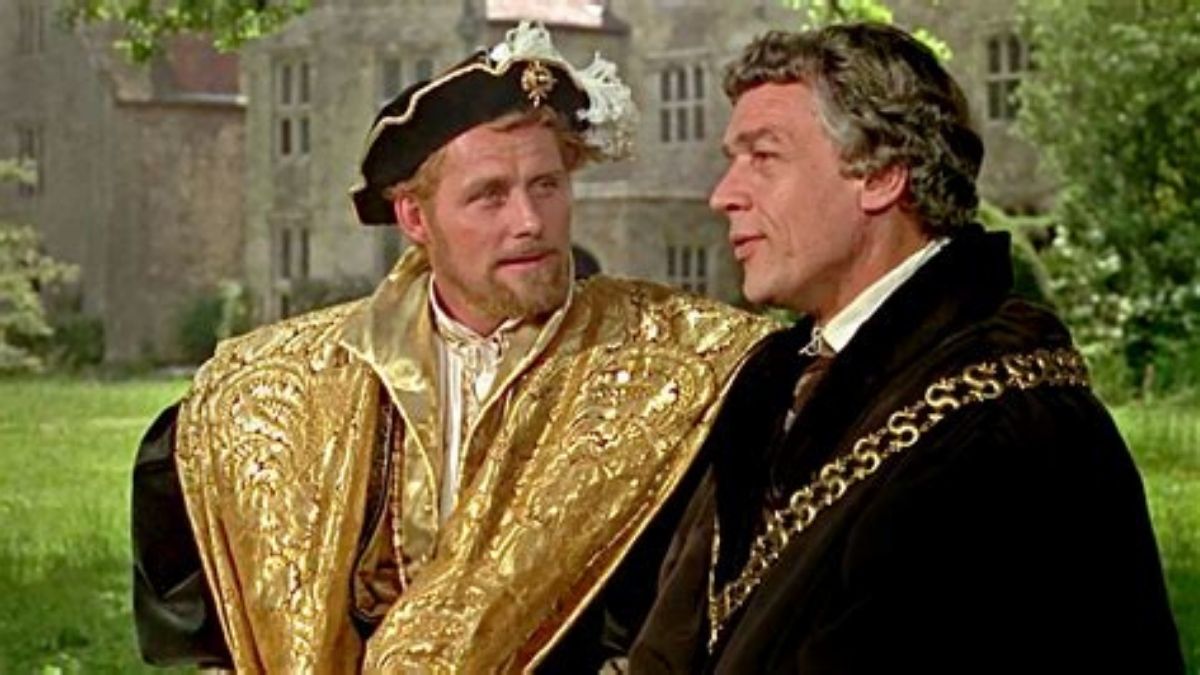
A Man for All Seasons Monologues
The story of Sir Thomas More, who stood up to King Henry VIII when the King rejected the Roman Catholic Church to obtain a divorce and remarry.
Sir Thomas More Monologues
Yes! What would you do? Cut a great road through the law to get after the Devil?
Oh? And when the last law was down, and the Devil turned 'round on you, where would you hide, Roper, the laws all being flat? This country is planted thick with laws, from coast to coast, Man's laws, not God's! And if you cut them down, and you're just the man to do it, do you really think you could stand upright in the winds that would blow then? Yes, I'd give the Devil benefit of law, for my own safety's sake!
And when we die, and you are sent to heaven for doing your conscience, and I am sent to hell for not doing mine, will you come with me, for fellowship?
Why Richard, it profits a man nothing to give his soul for the whole world… but for Wales?
But Richard, that's a little bribe. At court they offer you all sorts of things, home, manors, manor houses, coats of arms. Why not be a teacher? You'd be a fine teacher; perhaps a great one.
You; your pupils; your friends; God. Not a bad public, that. Oh, and a quiet life.
I do none harm, I say none harm, I think none harm. And if this be not enough to keep a man alive, in good faith I long not to live.
I think that when statesmen forsake their own private conscience for the sake of their public duties, they lead their country by a short route to chaos.
When a man takes an oath, he's holding his own self in his own hands like water, and if he opens his fingers then, he needn't hope to find himself again.
If we lived in a state where virtue was profitable, common sense would make us saintly. But since we see that avarice, anger, pride, and stupidity commonly profit far beyond charity, modesty, justice, and thought, perhaps we must stand fast a little - even at the risk of being heroes.
Well, finally, it isn't a matter of reason. Finally, it's a matter of love.
But what matters to me is not whether it's true or not, but that I believe it to be true, or rather not that I *believe* it, but that *I* believe it. I trust I make myself obscure.
Now, listen, Will. Two years ago you were a passionate churchman. Now you're a passionate Lutheran. We must just pray that when your head's finished turning, your face is to the front again.
Listen, Meg, God made the angels to show Him splendor, as He made animals for innocence and plants for their simplicity. But Man He made to serve Him wittily, in the tangle of his mind. If He suffers us to come to such a case that there is no escaping, then we may stand to our tackle as best we can, and, yes, Meg, then we can clamor like champions, if we have the spittle for it. But it's God's part, not our own, to bring ourselves to such a pass. Our natural business lies in escaping. If I can take the oath, I will.
Not so. Not so, Master Secretary. The maxim is "Qui tacet consentire": the maxim of the law is "Silence gives consent". If therefore you wish to construe what my silence betokened, you must construe that I consented, not that I denied.
The world must construe according to its wits; this court must construe according to the law.
Since the Court has determined to condemn me, God knoweth how, I will now discharge my mind concerning the indictment and the King's title. The indictment is grounded in an act of Parliament which is directly repugnant to the law of God, and his Holy Church, the Supreme Government of which no temporal person may by any law presume to take upon him. This was granted by the mouth of our Savior, Christ himself, to Saint Peter and the Bishops of Rome whilst He lived and was personally present here on earth. It is, therefore, insufficient in law to charge any Christian to obey it. And more to this, the immunity of the Church is promised both in Magna Carta and in the king's own coronation oath!
Not so. I am the king's true subject, and I pray for him and all the realm. I do none harm. I say none harm. I think none harm. And if this be not enough to keep a man alive, then in good faith, I long not to live. Nevertheless, it is not for the Supremacy that you have sought my blood, but because I would not bend to the marriage!I am commanded by the King to be brief, and since I am the King's obedient subject, brief I will be. I die his Majesty's good servant but God's first.
Some men think the earth is round, others think it flat. It is a matter capable of question. But if it is flat, will the King's command make it round? And if it is round, will the King's command flatten it?
I will not give in, because I oppose it. Not my pride, not my spleen, nor any other of my appetites, but I do, l. Is there, in the midst of all this muscle, no sinew that serves no appetite?
You may suppose I have objections. All you know is that I will not swear to it, for which you cannot lawfully harm me further. But if you were right in supposing me to have objections, and right again in supposing my objections to be treasonable, the law would let you cut my head off.
I have no window to look into another man's conscience. I condemn no one.
Not at all, Alice. I expect I'll write a bit. I'll write, I'll read, I'll think. I think I'll learn to fish. I'll play with my grandchildren when son Roper's done his duty.
No! Alice, it's a point of law. Accept it from me, Alice, that in silence is my safety, under the law. And my silence must be absolute, it must extend to you.
Affection goes as deep in me as you, I think. But only God is love right through.
Whatever may be done by smiling, you may rely on me to do. Set your mind at rest. This is not the stuff of which martyrs are made.



